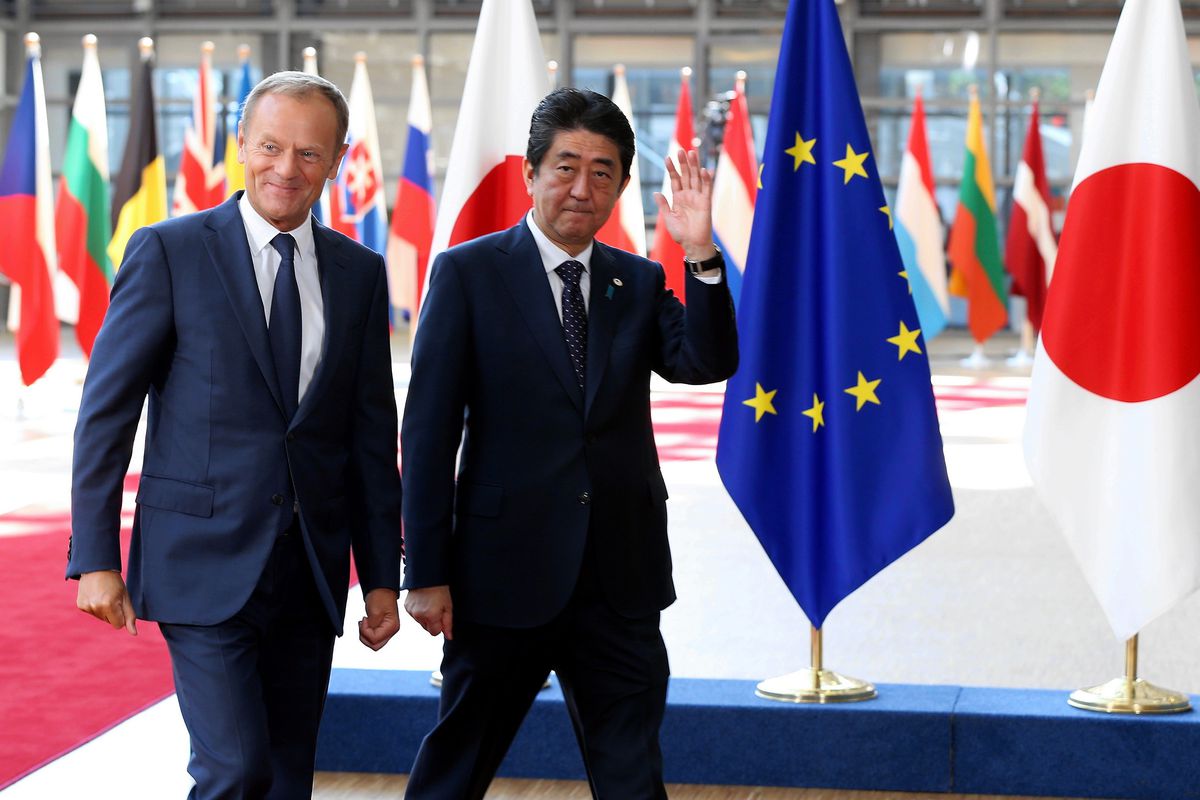EU-Japan trade agreement not compatible with EU data protection
FFII | 10 December 2017
EU-Japan trade agreement not compatible with EU data protection
By Ante Wessels
Draft
The EU and Japan have announced the conclusion of the final discussions on a trade agreement, the EU-Japan Economic Partnership Agreement (EPA).
Regarding cross-border data flows and data protection, the European Commission’s press release states that recent reforms of their respective privacy legislation offers new opportunities to facilitate data exchanges, including through a simultaneous finding of an adequate level of protection by both sides.
But this is not the full story. Besides the possibility to adopt adequacy decisions, the EPA contains explicit data flow commitments in the financial section, implicit data flow commitments in the services chapter, and a review clause. Especially the implicit data flow commitments do not seem compatible with the fundamental right to the protection of personal data.
In addition, a form of investor-to-state dispute settlement (ISDS/ICS) may be added later. All published texts are subject to legal scrubbing.
Adequacy decisions
Allowing cross-border data flows through an adequacy decision is, in principle, the correct way. Such decisions are EU decisions (from the EU point of view). If data protection in Japan deteriorates, or if the EU rejects mass surveillance in Japan, the EU can revoke the adequacy status – in principle. It remains to be seen whether the European Commission would really do that. Take this formulation in the press release:
“This offers new opportunities to facilitate data exchanges, including through a simultaneous finding of an adequate level of protection by both sides.”
The formulation “simultaneous finding of an adequate level” suggests horse-trading.
Implicit cross-border data flow commitments
Many people overlook implicit data flow commitments. Chapter 8 Section C
Cross-Border Trade in Services, contains National treatment and Most-favoured-nation treatment clauses.
Cross-border services imply cross-border data flows. 1 We find a safeguard in Section G Exceptions, Article X1 General exceptions, paragraph 2. It is a GATS article XIV kind of exception with many conditions. Such safeguards are insufficient, see Kristina Irion, Svetlana Yakovleva, and Marija Bartl.
The implicit cross-border data flow commitments do not have a sufficient safeguard. This is not compatible with the EU Fundamental rights system.
Explicit data flow commitment
Chapter 8 Section E Sub-section 5 Financial Services, article 6, Transfers of Information and Processing of Information, contains a cross-border data transfer commitment regarding financial data. Paragraph 2 contains a safeguard that is stronger than the one used in earlier EU trade agreements 2 and it is also stronger than the general exception in Section G Exceptions, mentioned above. The safeguard is based on the 1994 Understanding on Commitments in Financial Services (article B. 8).
The exception still has a condition, measures to protect personal data are allowed so long as such right is not used to circumvent the provisions of the article. It is a step forward, but some uncertainties remain. 3
Review clause
The draft EPA contains a review clause. Chapter 8 Section F Electronic Commerce Article 12 Free Flow of Data reads:
“The Parties shall reassess the need for inclusion of an article on the free flow of data within three years of the entry into force of this Agreement.”
There is a lot of discussion on free flow of data commitments – while the draft EPA already contains (often overlooked) implicit data flow commitments. The review clause may act as a distraction.
ISDS
The commission’s press release notes that negotiations continue on investment protection standards and investment protection dispute resolution. Adding ISDS/ICS or an investment court could have a negative impact on data protection. See here and here.
Footnotes:
1 See page 1 (after the Roman numerals) Kristina Irion, Svetlana Yakovleva, and Marija Bartl.
2 Korea, Canada (CETA), Singapore, Vietnam and Ukraine.
3 See, in general; without the part on ISDS in this case, here.
For hyperlinks, read the article on its original page






